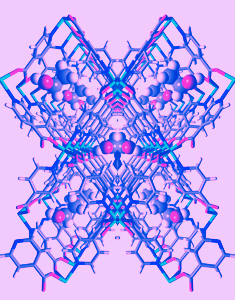Meta-optic tests launching
 Australian engineers will be involved in testing advanced materials for the next generation of space technology.
Australian engineers will be involved in testing advanced materials for the next generation of space technology.
A new study has been commissioned by the European Space Agency (under PECS, the Program for European Cooperating States), to prove the reliability of meta-optical elements for space use.
Meta-optics is a new field of optical physics that aims to replace traditional optics (mirrors, lenses etc.) with metasurfaces, which are thinner than a piece of cling wrap and will greatly reduce the size, weight and power requirements of future space technology.
The project is a collaboration between the ESA, Bulgarian start-up company LaboraXpert and TMOS, the Australian Research Council Centre of Excellence for Transformative Meta-Optical Systems.
The study will determine whether meta-optical components can withstand the pressures of space launch and prolonged exposure to the space environment.
“The demand for Earth observation data is growing, yet the industry still faces the challenge of size and weight constraints when sending a payload into space,” says TMOS Centre Director Professor Dragomir Neshev.
“Meta-optics will allow for the simultaneous advancement of the functionality and miniaturisation of remote sensing systems. This study will provide information towards the development of robust space applications using meta-material optical elements.”
“We believe meta-optics will enable a new set of innovative applications because of its ability to miniaturise complex optical devices and provide additional embedded functionality of optical systems.
“Meta-optics significantly outperforms bulky traditional optics in its low size, weight and power requirements, which will have a great benefit for the space industry. Space environment applications are tough ones to succeed in.”








 Print
Print